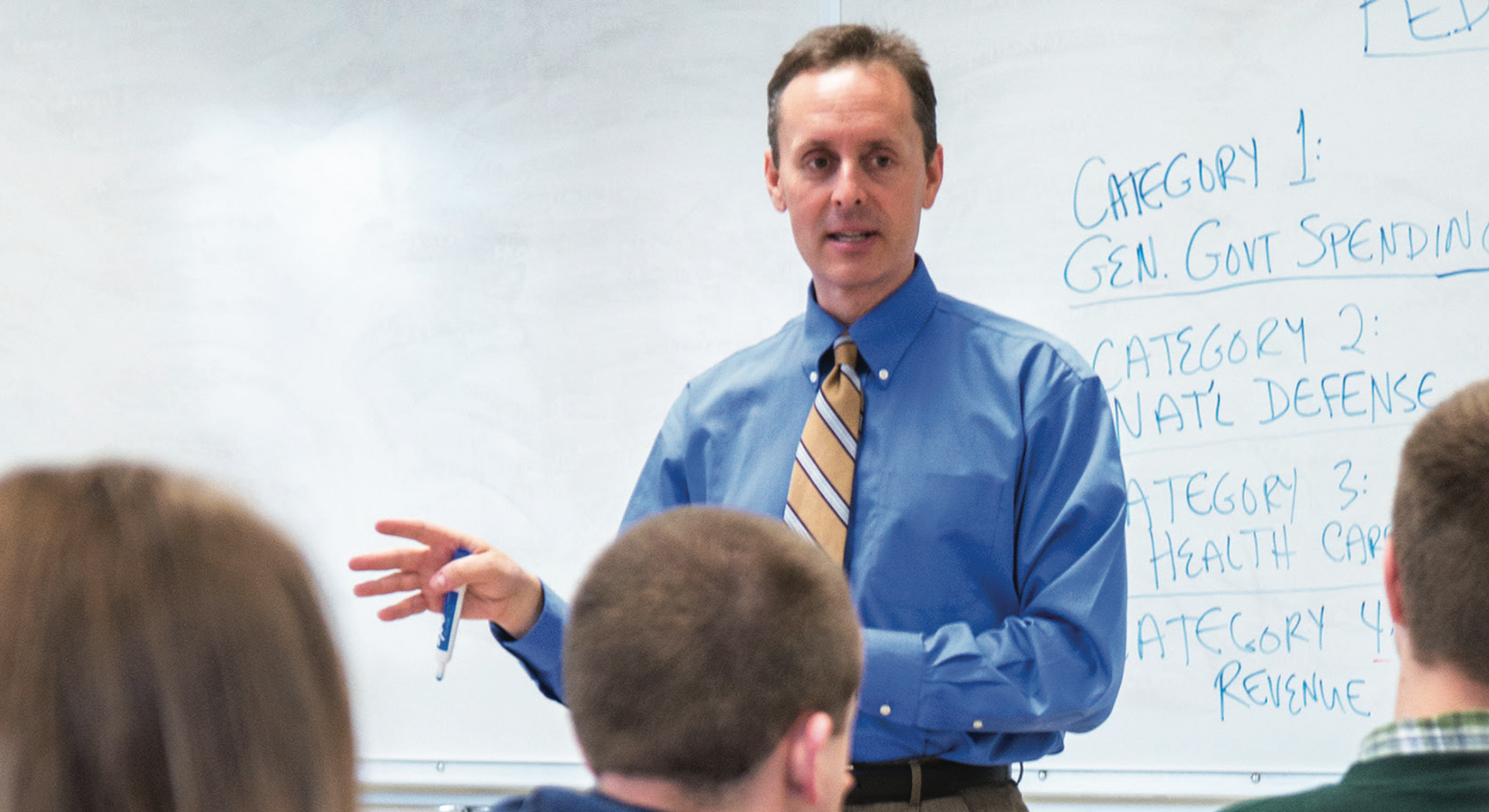In his twenty-third year teaching at the University of Maine, political science professor Richard Powell has extensive experience in both his discipline and the field of education. He has taught at numerous universities in America and China and is the founding director of the Cohen Institute for Leadership and Public Service. This semester, Powell is teaching an array of political science and leadership studies courses along with working on numerous projects related to his discipline.
Although Powell’s educational profession has been highly successful, it remained an unrealized goal for much of his undergraduate career. After an unenjoyable post-grad semester in law school, Powell took time to reconsider his next steps. A desire to mirror past professors was the catalyst for his lifelong path in teaching.
“I had some great professors when I was in college, and I really wanted to model teaching after them. They really tried to make class fun and interesting, not just informative,” Powell said.
His choice to study political science also came naturally. 
“I’d always liked my government classes and learning about political science and wanted to go back and spend my life doing research and teaching in that area,” Powell said.
After obtaining his Master’s degree and Ph.D. from Northwestern University, Powell taught at various higher education institutions before ending up at UMaine. He has been part of our faculty since 2001.
Since then, the field of political science has undergone significant change. However, Powell stresses that the foundational elements of his discipline largely remain unchanged.
This semester, Powell teaches courses on American government, leadership studies, and American political thought. Although his higher-level courses are geared toward political science majors, Powell encourages students of all disciplines to consider enrolment in his general education courses. These include POS 100 and LDR 100.
Under Powell’s supervision, the university’s leadership studies minor experienced significant change. The minor aims to teach students skills that can be applied to any discipline. Powell enjoys having students of varying majors in class because they highlight unique, otherwise overlooked perspectives.
“The leadership minor that we developed about ten years ago—and has grown considerably over the past decade—really is designed to appeal to students all across the university,” he said.
The minor’s foundational courses provide students with frameworks to identify their strengths and weaknesses.
“We really want people to get to know themselves…and how to effectively work with other people,” Powell said.
Leadership ethics is also a key component of the minor.
“We really have a shortage of ethical leadership in our society today, so we want all of our leadership students not just to learn how to lead but do so in an ethically thoughtful way,” Powell said.
The leadership studies minor offers a rounded experience that extends beyond academic courses. In tandem with the Cohen Institute, the minor sponsors a yearly, week-long spring semester Washington D.C. course. Selected applicants spend the week in the nation’s capital, participating in skill-building activities through meeting with leaders in government, military and business.
“Students learn from all sorts of very high-level officials. They get incredible access. We’ve been to the White House, and to Capitol Hill and the State Department and the Pentagon,” Powell said.
Powell’s work in the nation’s capital doesn’t stop there. He manages the Maine Congressional Internship Program, which has been operating since 1958.
“Every semester, I supervise a handful of students who spend the entire spring semester working in Congress, and they get a full semester’s course credit for working down there,” Powell said.
Powell praises these kinds of educational experiences because they help students apply their classroom knowledge to real-world environments.
“We really try to link what we do in a classroom to internship opportunities and career development opportunities,” he said.
Outside the classroom, Powell participates in various projects within the field of political science. Currently, he is studying the effects of gerrymandering on state representation through the development and use of intricate computer technology.
“We were able to come up with very accurate measurements of how gerrymandered each particular state might be,” Powell said.
Powell’s interests within his discipline often shift as political climates change.
“I’m really interested right now in the demographic and ideological changes in the American political parties that are underway. I’m especially interested in research on the changing nature of the Republican Party in American politics,” said Powell.
Professor Powell’s dedication to teaching is obvious through his extensive involvement within the university and his steadfast commitment to students.
“Teaching is just such an incredible endeavor,” he said.






